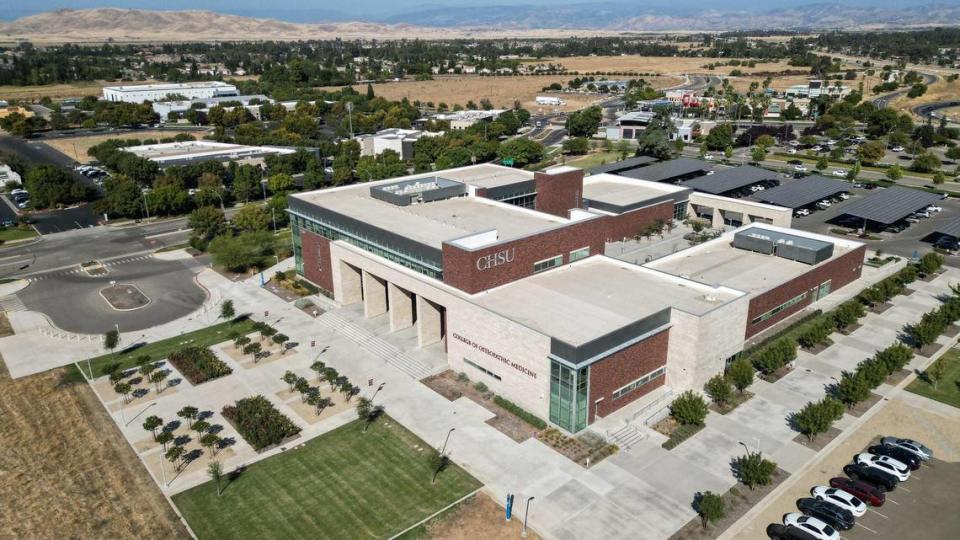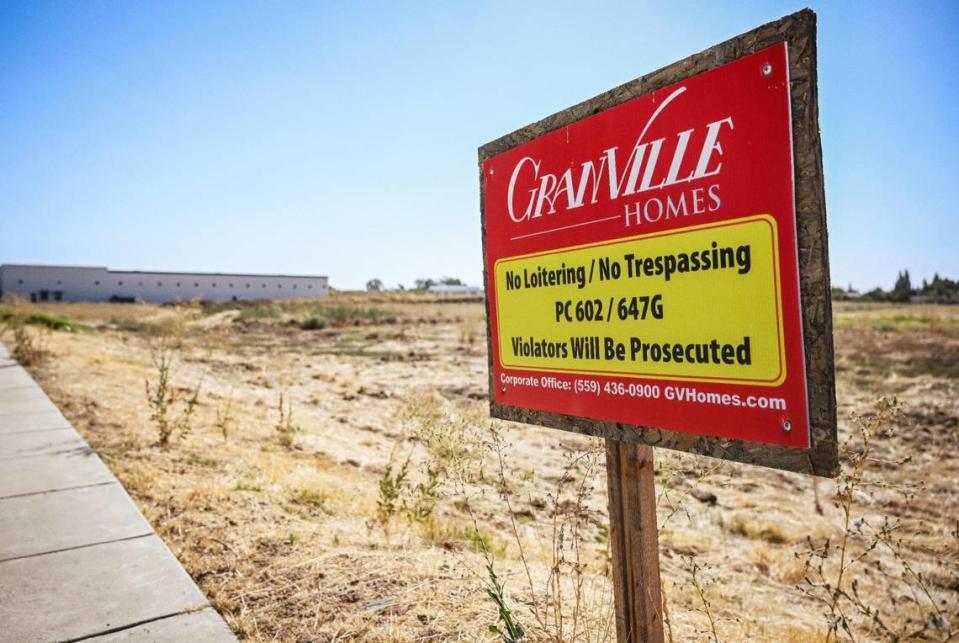Report on Clovis-Assemi coziness confirms what we suspect: Developers call the shots | Opinion
There are certain truths about Fresno and Clovis that people born or who’ve lived in either city long enough come to accept.
Heat and poor air quality are part of the deal. (Though I must say the fall weather right now is lovely.) And so is the ingrained knowledge that developers, as opposed to local politicians or planners, wield most of the power over land-use decisions.
No point debating the latter. The sprawl-induced grid patterns of stop lights, subdivisions and strip malls — designed more for profit maximization than livability — are proof enough.
Rarely, though, are we given a glimpse behind the opaque curtain of city government for such a revealing look at how developers exert their influence and the willingness of officials are to do their bidding. Not only through financially advantageous zoning decisions, but by going out of their way to help the developer avoid public scrutiny.
It’s all laid out in a recent investigation by former Bee staff writer Yesenia Amaro, now with The Oregonian.
Opinion
Amaro’s reporting thoroughly details the special treatment granted to the Assemi Group and the Assemi family’s Granville Homes by Clovis officials over a quasi campus housing development to support the California Health Sciences University, the for-profit medical school also owned by the Assemis.
The story also illuminates why laws such as Senate Bill 1439, which requires council members to recuse themselves from votes related to campaign donors who give more than $250, are sorely needed. Because local politicians that tell us donations don’t affect their votes are really telling us to ignore common sense.
California Health Sciences University, situated inside Clovis Research and Technology Park along Highway 168, is undeniably an asset to our region. The central San Joaquin Valley has a well-documented shortage of medical professionals, and we can’t afford to be picky over whether some of our locally trained doctors practice osteopathic medicine.

Even the recent final approval of a $300 million medical school at UC Merced, whose eight-year joint degree program with UCSF-Fresno began this fall, doesn’t change that.
It makes sense for CHSU students — the current enrollment is 518, according to the school’s website — and faculty to be provided nearby housing options. No argument there. To meet that demand, a memorandum of understanding between the city and an Assemi-owned subsidiary called for a 286-unit apartment on 24 acres within the technology park.
At some point, however, the developer’s housing request grew to 250 single-family homes, 64 townhomes and up to 400 apartment units on 70 acres spread over two sites. Plus a loophole that would only give CHSU students and faculty 30 days until the homes could be purchased by general public.
Not only did Clovis officials give their blessing, taking action that would allow Granville Homes to build hundreds of homes while skirting a significant amount of fees used to fund essential city services, they also consulted with the developer over how to best keep concerned neighbors none the wiser.
City planner’s exit explained
Clovis officials are fortunate that Ricky Caperton, whose chummy relationship with the developer was detailed in the report, is now employed elsewhere. Which allows them to quarantine some of the embarrassment.
But let’s get something straight: Caperton was a deputy city planner in Clovis. In Napa, he’s the city’s planning manager. Meaning Caperton, who worked for the city of Fresno before that, left for a better gig. His actions weren’t cause for any reprimand. They were essentially rewarded.
By delicious coincidence, Granville Homes’ secret sway over Clovis city officials came to light only a month after owner Darius Assemi publicly exerted his influence over the Fresno City Council by appearing at consecutive October council meetings and cajoling the council majority into gifting him and other developers a special tax favor.

That occurred while the reporter that doggedly covers City Hall for Assemi’s news website, and would never in any other instance fail to cover such a lively council debate, was thousands of miles away.
Considering our region’s housing shortage, it is incumbent on city officials to encourage construction by not enforcing onerous fees or restrictions. But that doesn’t mean an influential developer should be allowed to build a bunch of homes inside a technology park — and take advantage of the zone-friendly cost savings — without full and complete transparency.
Living here, we grow to assume these sorts of special favors and backroom deals happen all the time. The difference this time is the details have been brought to light by Amaro’s reporting.
Another difference: Those houses, townhomes and apartments Granville wants to build remain empty lots. So there’s still time for the city of Clovis to do the right thing.

